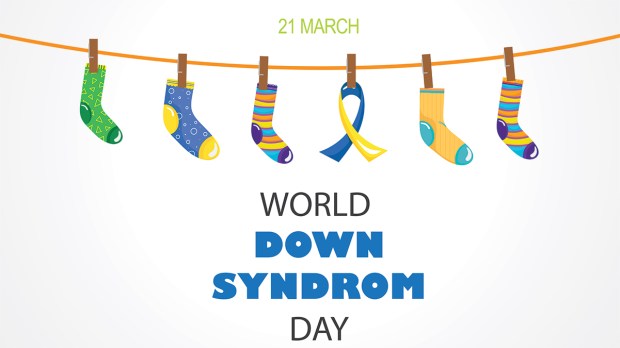A much-anticipated feature of World Down Syndrome Day, March 21, is the annual release of a well-produced advocacy video by an Italian organization called CoorDown.
In 2014, when I was working with The Jerome Lejeune Foundation, we were one of the sponsors of a beautiful video they produced called Dear Future Mom. That video has now had over 8.6 million views on YouTube alone. Future Mom began with a question from an expectant mother who has just learned her baby has Down syndrome. She asks, “What kind of life will my baby have?” The answers were provided by beautiful, happy folks with Down syndrome and the message was positive and uplifting. Most viewers were in need of a tissue by the end.
To their credit, CoorDown is consistent in delivering high quality videos each year that convey variations of the same compelling message — that Down syndrome is no big deal, and that these people are just people with the same needs and desires as the rest of us. Things like acceptance, love, education, employment, etc.
I’m very sorry to say that this year, CoorDown made some horribly offensive, and potentially damaging choices. To drill down on the point of inclusion and autonomy, and to blow up the assumptions that those living with Down syndrome can’t participate in society alongside everyone else — in school, at bars, in independent living, in activities like martial arts, employment, and having sex — they cast a hard-edged, female character and directed her to be crass, hedonistic, foul mouthed, and lustful. She makes it clear to the viewers that she can drink, curse, have sex, and hit a punching bag just like everyone else — that she can BE just like everyone else.
CoorDown calls this their “Assume That I Can” campaign. I get it. Too many assumptions are made about people with Down syndrome, and it’s true that they are shut out of opportunities because of it. CoorDown made this point beautifully in 2023 with Ridiculous Excuses Not To Be Inclusive, and in 2018 with Lea Goes To School.
They crossed the line with a mostly undressed couple taking a romp in bed at the end of Just the Two of Us (2022), and again in 2015 with a beautifully set up proposal scene in The Special Proposal. In that one, when the young man goes down on his knee and opens the small box to present his proposal to his beloved, we don’t see a ring. He’s offering her a key and asking her to move in with him. So much for commitment.
Same messes as the rest of us
Yes, it’s true. These days people with Down syndrome can live in sin just like anyone else. OK, call me old fashioned. But living together without commitment is empty gratification and inherently unstable. Why would Down syndrome advocates encourage the party scene, cohabitation, and gratuitous sex within a population that is commonly known to be vulnerable to grooming and abuse, and in many cases unable to give consent to a sexual relationship. This video sets up potentially dangerous expectations.
Dr. Brad Wilcox in his new book, Get Married: Why Americans Must Defy the Elites, Forge Strong Families, and Save Civilization, discovered that with the decline of the marriage rate over the last 50 years (by 60%) there has also been a decline of happiness and prosperity. Research has also shown that the relationships of couples who cohabitate are less stable, at risk for lower commitment, and often produce depressive symptoms in one or both of the partners.
So, CoorDown, why paint Down syndrome with a broad brush and encourage individuals who fall on a broad spectrum of ability and accountability to make the same messes of their lives as the rest of us? Sure, bring on the sexually transmitted diseases, anxiety, depression, and abortion when things don’t go as planned. Let’s put the word out in the community that for a young woman with Down syndrome to be like everyone else, she has to be a badass who reads “f***ing Shakespeare” and drinks margaritas.
I was distressed to see that our U.S. advocacy organizations, the Global Down Syndrome Foundation and the National Down Syndrome Society, were credited for supporting this mess of a production. So, too, is Down Syndrome International, one of the first organizers of World Down Syndrome Day.
Clearly, CoorDown and their sponsors got the attention they wanted. As of March 18, the video had reached 4.1 million views on TikTok and 5 million on Instagram. Bravo! But what have those people seen and what message have they heard? How are they answering that future mom’s question from the 2014 video — “What kind of life will my baby have?”
Mark Bradford is the Fellow for Persons with Intellectual and Developmental Disabilities at the Word on Fire Institute.


